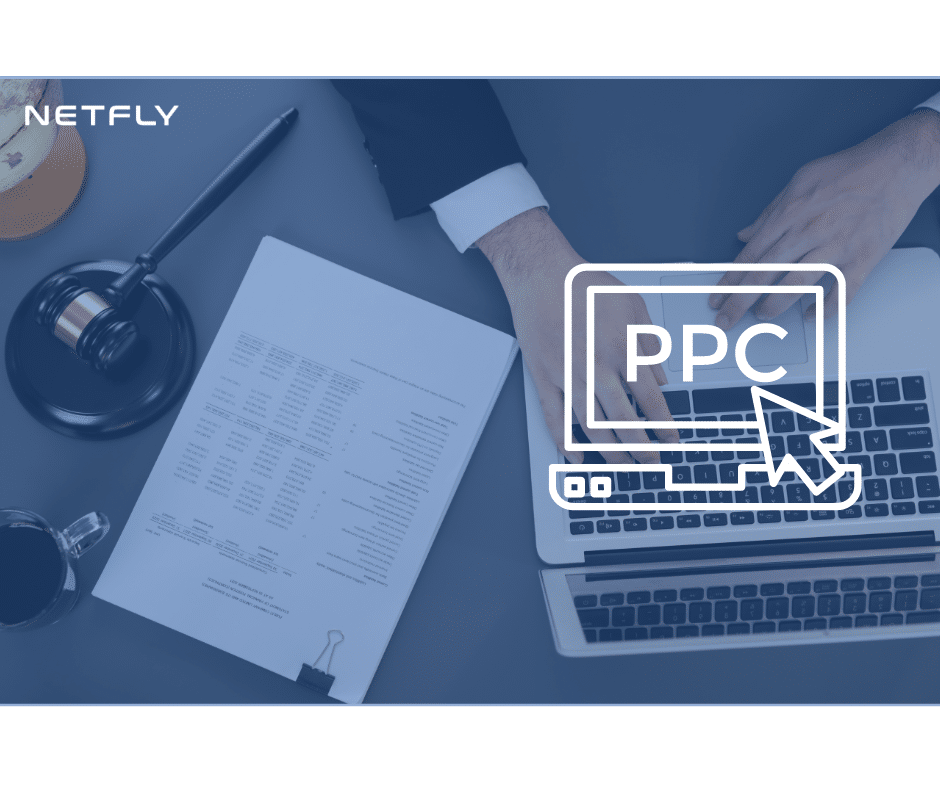To master PPC advertising for your law practice, you’ll need to start with thorough keyword research, ensuring you’re targeting the most essential terms specific to your legal services. Understand your audience’s demographics and tailor your ads to meet their specific needs, keeping your ad copy sharp and engaging. You should also set clear goals for each campaign, structure your ad groups carefully, and constantly optimize your landing pages for better conversion rates. Budget management is pivotal; allocate funds wisely and adjust bids to maximize ROI. Always monitor and analyze data to refine strategies, making informed adjustments based on performance metrics. As you proceed, discover strategies for ongoing success and adaptation in this dynamic digital space.
Key Takeaways
- Conduct thorough keyword research focusing on legal terms and long-tail keywords for higher conversion rates.
- Tailor ad copy specifically to address the unique pain points and needs of potential legal clients.
- Optimize landing pages to ensure relevancy and enhance user experience, directly influencing conversion rates.
- Continuously monitor and adjust bids based on performance data and competitive pressures within the legal market.
- Use data analytics to refine campaign strategies, targeting adjustments, and budget allocations effectively.
Understand PPC Fundamentals
To effectively leverage PPC (Pay-Per-Click) advertising as a lawyer, it’s vital you grasp its core principles. At the heart of a successful PPC campaign lies detailed keyword research and strategic campaign optimization. You must select keywords that are highly relevant to the legal services you offer. This isn’t just about choosing the most popular terms; it’s about identifying the specific phrases potential clients are using when seeking legal assistance. Precision in this step guarantees that your ads appear in front of the right audience, maximizing your budget efficiency.
Campaign optimization is your next critical focus. This involves not only selecting the right keywords but also setting appropriate bids for those keywords and continuously refining your approach based on performance data. You’ll need to analyze click-through rates, conversion rates, and other relevant metrics to comprehend what’s working and what isn’t. Adjustments may be necessary to align with your firm’s goals, whether that’s increasing visibility, maximizing conversions, or maintaining cost efficiency.
Identify Target Audience
To effectively target your PPC campaigns, you’ll need to first define the demographic details of your potential clients. Analyzing behavioral patterns will help you understand their online habits and preferences, enabling you to tailor your ads more precisely. This targeted approach guarantees your advertising efforts are not only seen but are impactful to the right audience.
Define Demographic Details
Understanding your target audience is vital when crafting PPC campaigns for legal services. By pinpointing who you’re aiming to reach, you can tailor your ads to resonate more deeply with potential clients. In the legal field, demographic details such as age, gender, income, and education significantly impact how individuals seek and select legal assistance.
Here’s how to define these essential demographic details:
- Age and Gender: Different legal issues often appeal to specific age groups and genders. For example, retirement planning might attract older clients, while family law could have a broader age range but might skew towards a particular gender depending on the issue.
- Income Levels: Understanding the income range of your target audience can help in crafting your messaging. Higher-income individuals might be looking for estate planning or complex litigation services.
- Education Levels: People with higher education levels may seek out more specialized legal services, such as intellectual property disputes or corporate law.
- Geographical Location: While not strictly demographic, location can influence the type of legal issues prevalent among residents, thereby tailoring your PPC strategy accordingly.
Addressing these details will help refine your PPC campaigns, making them more appealing and effective.
Analyze Behavioral Patterns
After defining your demographic details, it’s essential to explore the behavioral patterns of your target audience. Delving into consumer behavior analysis enables you to understand not just who your potential clients are, but also how they interact with legal services online. This insight is pivotal in crafting your PPC campaigns to be as effective as possible.
You’ll want to look at various metrics such as the times when your audience is most active online, the types of content they engage with, and the search terms they use when looking for legal advice. These patterns reveal the channels where you should focus your advertising efforts and help you refine your messaging to resonate more deeply with potential clients.
Implementing audience engagement strategies is also crucial. Engage with users who click on your ads by directing them to a well-organized landing page that answers their initial queries and encourages further interaction. Use retargeting techniques to stay visible to those who’ve shown interest but haven’t yet converted, gently nudging them back to your services.
Select Relevant Keywords
Selecting relevant keywords is crucial when crafting a PPC campaign for lawyers. You’ll want to focus on keyword research and competitor analysis to make sure you’re targeting terms that potential clients are actually searching for. This strategy not only enhances your campaign’s reach but also increases its effectiveness by connecting you with your ideal audience.
Here’s how you can refine your keyword selection:
- Conduct Thorough Keyword Research: Use tools like Google Keyword Planner or SEMrush to identify keywords related to legal services. Look for terms with high search volumes but manageable competition.
- Analyze Competitor Keywords: Check which keywords your competitors are targeting. This insight can help you discover niche areas they might be overlooking.
- Focus on Specificity: Instead of broad terms like “lawyer,” target more specific keywords such as “divorce lawyer in Atlanta” to capture more qualified leads.
- Utilize Long-Tail Keywords: These are longer and more specific phrases that tend to have lower competition and higher conversion rates. Examples include “cost of child custody lawyer” or “best personal injury attorney near me.”
Set Clear Campaign Goals
To effectively manage your PPC campaigns, you’ll need to establish what success looks like. Begin by defining specific success metrics that align with your firm’s marketing objectives. Then, identify the target outcomes you aim to achieve, ensuring these are measurable and directly tied to your strategic goals.
Define Success Metrics
Before launching your PPC campaign, it is essential to define what success looks like for your law firm. Setting clear, measurable goals will guide your efforts and help you understand the efficacy of your strategies. Here’s how you can approach it:
- Conversion Tracking: Implement tools to monitor how many clicks lead to actions such as contact form submissions or calls. This is direct evidence of your campaign’s effectiveness.
- ROI Analysis: Calculate the return on investment by comparing the costs of your PPC efforts against the revenue generated from new clients acquired through the ads. It’s crucial to know if the financial outlay translates into profitable gains.
- Performance Measurement: Regularly assess ad performance to ensure they are meeting the pre-set objectives. Adjustments may be necessary to optimize results.
- KPI Setting: Establish Key Performance Indicators (KPIs) specific to your law firm’s needs. These could include click-through rates, cost per acquisition, and client conversion rates.
Identify Target Outcomes
Having established the significance of defining success metrics, let’s focus on identifying specific target outcomes for your PPC campaign. As a lawyer, your goals aren’t just about driving traffic; they’re about converting that traffic into clients. This phase is vital for aligning your PPC efforts with your firm’s business objectives.
First, consider what you’re aiming to achieve. Is it more consultations booked, downloads of your legal guides, or direct calls to your office? Each of these outcomes requires distinct strategies and targeted messaging. For instance, if the objective is to increase consultations, your ads should emphasize the ease of booking a session and the confidentiality of the service.
Outcome measurement is your next big step. It’s not enough to set goals; you also need to track whether your ads are meeting these goals. Implement tools that allow you to track conversions directly from your ads. This data will not only show you if you’re hitting your targets but also where you need to adjust your tactics.
Design Engaging Ad Copy
Almost every lawyer understands the power of a well-crafted advertisement; yet, designing engaging ad copy that captures attention and converts prospects into clients is a skill that requires accuracy and creativity. In the legal field, where the competition is fierce and the stakes are high, your ad copy shouldn’t just inform—it should resonate and compel action.
Here are some essential tips to improve your PPC ad copy:
- Brand Messaging: Clearly articulate your unique value proposition. What sets your legal services apart? Emphasize these elements to create a strong brand identity that speaks directly to your target audience.
- A/B Testing Strategies: Regularly test different versions of your ad copy. This will help you understand what resonates best with your potential clients and refine your messaging for better performance.
- Call to Action Placement: Your call to action (CTA) should be prominent and persuasive. Placement is key; make sure it is positioned where it naturally draws the eye, encouraging immediate engagement.
- Copy Optimization: Use data-driven insights to optimize your ad copy. Tailor your language to match the search intent of your prospects, using keywords effectively to improve both relevance and click-through rates.
Mastering these elements will notably improve your PPC campaigns, driving better outcomes and higher ROI.
Structure Ad Groups Effectively
While mastering ad copy is important, structuring your ad groups effectively can greatly enhance your PPC campaign’s efficiency and impact. As a lawyer aiming to capture the attention of potential clients, it’s vital to understand how ad group organization and keyword relevance play pivotal roles in your campaign’s success.
Firstly, organize your ad groups by specific areas of practice. This segmentation allows for more targeted ad copy and increases the relevance of your keywords to your audience. For instance, having separate ad groups for “family law” and “corporate law” ensures that the ads and keywords are closely aligned with the searcher’s intent, reducing wasted clicks and improving conversion rates.
Secondly, within each ad group, refine your keyword selection. Choose keywords that are directly relevant to the ads in that group. This isn’t just about including broad terms like “lawyer” or “attorney”; it’s about being specific. For example, in a “personal injury” ad group, keywords like “personal injury attorney” and “accident lawyer” can drive more qualified traffic.
Optimize Landing Pages
Optimizing your landing pages is fundamental for converting PPC traffic into clients. As a lawyer, each click represents a potential client, so guaranteeing your landing pages are finely tuned is essential for maximizing your ad spend effectiveness. Conversion optimization begins with a thorough analysis of user experience. Here’s how you can enhance your landing pages:
- Clear Call-to-Action (CTA): Your CTA should be bold and direct, encouraging visitors to take immediate action, whether it’s scheduling a consultation or downloading a legal guide.
- Relevant Content: Align your content specifically with the ad that brought the visitor to your page. If your ad discussed personal injury law, your landing page should focus solely on that area, highlighting your success and expertise.
- Fast Loading Times: Guarantee your page loads quickly to reduce bounce rates. A slow page can deter potential clients, undermining your PPC efforts.
- Mobile Optimization: With more users than ever accessing websites via mobile devices, your landing page must be responsive and easy to navigate on any device.
Manage Budget and Bids
As you navigate PPC advertising, understanding how to manage your budget and optimize your bid strategies becomes essential. You’ll need to allocate your budget effectively to guarantee maximum return on investment and drive targeted traffic to your site. Analyzing performance data regularly allows you to adjust bids dynamically, adapting to market conditions and competitor actions.
Optimize Bid Strategies
To effectively manage your budget and bids in PPC advertising, it’s crucial that you optimize your bid strategies with precision. Understanding the nuances of bid optimization and the importance of performance tracking can greatly enhance your campaign’s efficiency and success.
Here are key aspects to focus on:
- Define Target CPA (Cost per Acquisition): Establish what you’re willing to pay for a conversion, and adjust bids to meet this target while maximizing ROI.
- Utilize Bid Adjustments: Increase or decrease your bids based on device performance, geographic location, and time of day to align more closely with when and where your ads perform best.
- Leverage Automated Bidding Tools: Consider using Google’s automated bidding strategies like Target CPA or Enhanced CPC, which use machine learning to optimize bids for each auction based on your historical data.
- Regularly Review and Adjust: Continuously monitor your campaign’s performance and make adjustments to bids based on analytics insights. This includes pausing underperforming keywords and scaling up those that bring valuable leads.
Allocate Budget Effectively
After perfecting your bid strategies for maximum effectiveness, focusing on how you allocate your budget becomes crucial. Effective budget management guarantees that you’re not simply throwing money at various campaigns, but rather investing it wisely to achieve the best returns. It’s crucial to analyze the performance data of your campaigns to understand where your dollars are creating the most impact.
Start by setting clear budget limits for each campaign based on their historical performance and potential to attract clients. You’ll need to be vigilant about monitoring these campaigns, adjusting your spend according to real-time results. If a particular campaign consistently underperforms despite optimization efforts, it’s wiser to reallocate those funds to more successful campaigns. This dynamic approach to budget management helps maintain cost efficiency while maximizing potential leads.
Furthermore, consider implementing tiered budgeting where higher funds are allocated to campaigns targeting highly competitive keywords that are more likely to convert. Conversely, reduce the budget for less critical keywords. This strategy ensures that you’re not overspending on lower-yield opportunities, thereby optimizing your overall investment and keeping your cost per acquisition in check.
Monitor and Analyze Performance
Monitoring and analyzing your PPC campaign performance is important to maximizing the return on your investment. Tracking progress and identifying areas to improve performance can seem challenging, but it’s vital for guaranteeing your campaigns are effective and your budget is used wisely.
- Click-through Rate (CTR): Keep an eye on your CTR to assess how well your ads are capturing attention. A low CTR might indicate that your ads aren’t resonating with your target audience or that your keywords aren’t well-matched with user intent.
- Conversion Rate: Measure how many clicks convert into clients. This metric helps you understand the effectiveness of your landing page and your ad’s call-to-action.
- Quality Score: Google’s rating of the quality and relevance of your keywords and PPC ads. A higher score can lead to lower costs and better ad placement.
- Cost per Acquisition (CPA): Monitor how much you’re spending to acquire a new client. Keeping your CPA in check ensures you’re not overspending for conversions.
Adjust Strategies Regularly
Adapting your strategies regularly is crucial to maintaining a competitive edge in PPC advertising for lawyers. As the digital landscape evolves, so must your approach to guarantee maximum impact and efficiency in your campaigns. Frequency adjustments and thorough performance checks are critical components in this ongoing process. You’ll need to evaluate your ad performance data frequently to identify what’s working and what isn’t.
Data analysis forms the backbone of effective PPC strategy adjustments. By delving deep into the metrics, you can uncover insights that drive smarter decisions. Are certain keywords underperforming? Is a specific ad group not delivering the expected conversion rates? Answering these questions through rigorous data analysis helps you refine your targeting strategies and optimize your budget allocation.
Furthermore, don’t overlook the importance of targeting modifications. The legal market is dynamic, and client needs can shift rapidly. Regularly updating your targeting criteria ensures that you’re always reaching the most relevant audience. This might involve changing geographic targets, refining keyword lists, or adjusting bids based on competitive pressure and search trends.
Frequently Asked Questions
How Does PPC Advertising Impact a Lawyer’s Ethical Considerations?
PPC advertising raises ethical dilemmas for you as a lawyer, impacting your professional conduct. It’s important to navigate these carefully to maintain integrity and comply with advertising standards set by regulatory bodies.
Can Non-Tech-Savvy Lawyers Manage PPC Campaigns Effectively?
Yes, you can manage PPC campaigns effectively by adopting simplified strategies and exploring outsourcing options. These approaches reduce complexity and guarantee your campaigns are professionally handled, even if you’re not tech-savvy.
What Are Common Legal Advertising Restrictions on PPC Ads?
Ever wondered how legal restrictions shape PPC ads? You must navigate legal disclaimers, ensure compliance, and monitor competitors rigorously. Guiding through these restrictions effectively protects your practice from potential legal pitfalls.
How Quickly Can PPC Generate Leads for New Law Practices?
PPC can quickly boost lead generation for new law practices, often seeing results within weeks. However, you must balance PPC impact with ethical advertising practices to maintain professionalism and comply with legal standards.
What Is the Average Cost per Click for Legal Services Ads?
Wading through the fog of industry benchmarks, you’ll find the average cost per click for legal services ads typically ranges between $1 to $50. Effective budget planning is essential to manage these costs wisely.
Conclusion
As you explore PPC advertising for your law practice, remember that mastering this domain isn’t just about setting up campaigns. It’s about constantly challenging the theory that more spending equals more success. Analyze every aspect of your performance data to debunk this myth. Regular adjustments based on concrete analytics, not just budget increases, will truly refine your strategy and maximize ROI. Stay targeted, stay analytical, and keep your approach as dynamic as the digital landscape itself.










